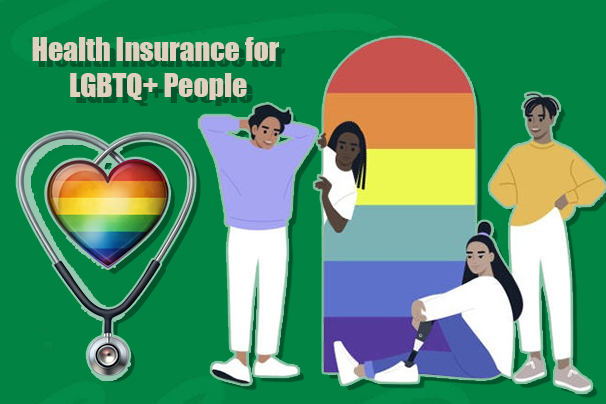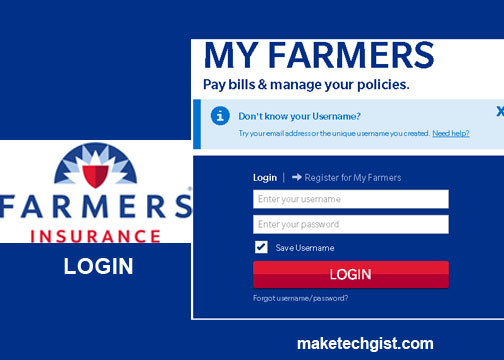LGBTQ+ people have long faced barriers to health insurance coverage and adequate treatment. Additionally, it’s essential to recognize the various natures of the LGBTQ+ community. The LGBTQ+ group faces stigma due to their sexual orientation or gender identity, although experiences differ based on race/ethnicity, income, and other variables.

The Affordable Care Act (ACA) and American Rescue Plan Act (ARP) have increased health insurance coverage for millions of Americans, including the LGBTQ+ population. However, inequities in access to treatment and health outcomes remain. Furthermore, this issue brief evaluates national survey data on the LGB+ community’s demographics, health insurance patterns, and obstacles to care.
How Health Insurance for LGBTQ+ People Works
LGBTQ+ individuals still face disadvantages in healthcare, although they also have some rights. Transgender persons gets protection against harassment in healthcare by twenty states and the US District of Columbia. Moreover, harassment in medical coverage depending on sexuality or sex is prohibited by fifteen states and the District of Columbia.
Health insurance exchanges and the plans get coverage within them are prohibited by the Affordable Care Act from discriminating depending on a person’s gender or sexuality.
- Health insurance companies are not allowed to raise your premiums just because you belong to the LGBTQ+ group or if you have a pre-existing medical condition like HIV/AIDS.
- Identical-sex and opposite-sex couples must be provided with equal coverage by health insurance.
- When it comes to obtaining premium tax credits and reduced cash insurance expenses, couples of the same gender gets special treatment in the same way by health insurance markets as couples of different sexes.
Benefits of Health Insurance for LGBTQ+ People
The climate for LGBTQ+ healthcare has improved over time, in part because LGBTQ+ Americans are now more widely accepted. Additionally, discrimination against LGBTQ+ Americans by health insurers and health insurance markets is prohibited under the federal Affordable Care Act. Also, federal legislation has increased LGBTQ+ people’s access to health insurance in recent years.
Prior to the enactment of the Affordable Care Act, health insurers had the option to refuse coverage to those who identify as LGBTQ+, increase premiums, or both. In addition, many people of the same gender were unable to get group health insurance policies through legal spousal benefits to legalize same-sex marriage nationwide.
Nowadays, the majority of LGBTQ+ individuals have access to Medicare, Medicaid, and private health insurance coverage, as well as public health insurance benefits offered by their state. Insurance companies are not permitted by the Affordable Care Act to refuse insurance to or penalize LGBTQ+ individuals extra due to their health.
According to the Kaiser Family Foundation, as a result, the percentage of LGBTQ+ individuals without health insurance fell by around half. Furthermore, insurance providers must offer the same policy to identical-sex couples as long as they are lawfully together.
Drawbacks of Health Insurance for LGBTQ+ People
There are several obstacles that members of LGBT+ people must overcome to get and use treatment, which may lead to differences in medical results. Unlike their non-LGBT+ counterparts, LGB+ people in the NHIS are more likely to report postponing care, have a less regular source of care, and worry about medical costs. Care for many LGB+ people is significantly gets restriction by the expense of services.
Moreover, LGBTQ+ individuals often face high costs or lack of coverage for medical care, regardless of health insurance coverage, particularly for transgender individuals and other gender minorities. The LGB+ community, often victims of violence, has delayed receiving psychological services due to financial constraints, highlighting the urgent need for effective counseling.
Generally, transgender women of color are one of the LGBTQ+ categories that suffer from disproportionately high incidences of violence, assault, and harassment. Traumatic events may contribute to the documented differences in mental health, drug use disorders, and negative health outcomes among LGBTQ+ individuals. Comparing LGBTQ+ persons to their non-LGBTQ+ equivalents, there is an important rise in the likelihood of committing suicide or harming oneself.
What the LGBTQ+ People Should Know About the ACA
The text provides essential information on the ACA, coverage alternatives, and LGBTQ+ health insurance, along with five key facts that individuals should be aware of. Furthermore, speak with your friends and family who don’t have insurance, even if you have it, and make sure they receive the information they require.
- It is illegal for state markets, health plans, and their staff to discriminate against the LGBTQ+ population. Additionally, if you have a pre-existing illness like HIV or cancer, your insurance cannot raise your premiums.
- November 1, 2019, marks the start of the open enrollment period for 2020 coverage, which concludes on December 15, 2019.
- You may enroll in a plan that suits your budget online, over the phone, or in person, regardless of where you reside. You may look over plans in your state marketplace on websites, and there are individuals who can guide you through the system and offer support. You can select and enroll in the plan that best suits your requirements by using the navigators and other resources listed on Out2Enroll.
- Your health insurance plan should include nondiscrimination safeguards, no exclusions for pre-existing conditions, and a full package of basic health benefits, including prescription medication coverage.
- Some companies are selling short-term duration policies, or look-alike plans, as an alternative to insurance.
Errors to Prevent When Buying Health Insurance
What types of errors may people who identify as LGBTQ+ make while acquiring health insurance? The same errors that anybody else could make typically include:
Insufficient research
Becoming a part of the LGBTQ+ community does not absolve you from doing your research. Evaluate a variety of insurance coverage in detail to determine which is best for you. Moreover, spending time knowing the ins and outs and determining which coverage is best for you is crucial.
Keeping your medical history hidden
You don’t need to conceal your true medical background now that the Stone Age is over. In addition, you will only suffer consequences if you decide to utilize your health insurance. In the past, LGBTQ+ people might have felt compelled to conceal their medical issues, but that is no longer the case.
Inadequate protection
This is particularly true for those whose employers provide their health insurance. You are not prohibited from obtaining extra personal coverage in addition to your employer-provided insurance.
Putting off getting health insurance for too long
Many people wait until they are older to consider getting health insurance, which is a huge error. You never know when you’ll need health insurance, and putting it off until later in life just increases the likelihood and cost of it. Furthermore, the ideal time to buy health insurance is when you’re younger and don’t think you need it, just as with life insurance.
Reversing the monthly premium and deductible amounts
Obtaining health insurance when young is a wise decision, but it’s crucial to ensure you get the most value for your money. A large deductible can lead to lower rates and significant monthly premium savings. As you age, consider lowering your deductible.
In large part because of the Affordable Care Act, the majority of LGBTQ+ Americans have access to health insurance on par with other Americans. However, a few LGBTQ+ Americans claim that their health insurance has discriminated against them. Furthermore, rules allowing health insurers to refuse to pay for gender-affirming care for children gets approval by a number of states. As a result, some LGBTQ+ individuals continue to have an unequal experience with health insurance.





